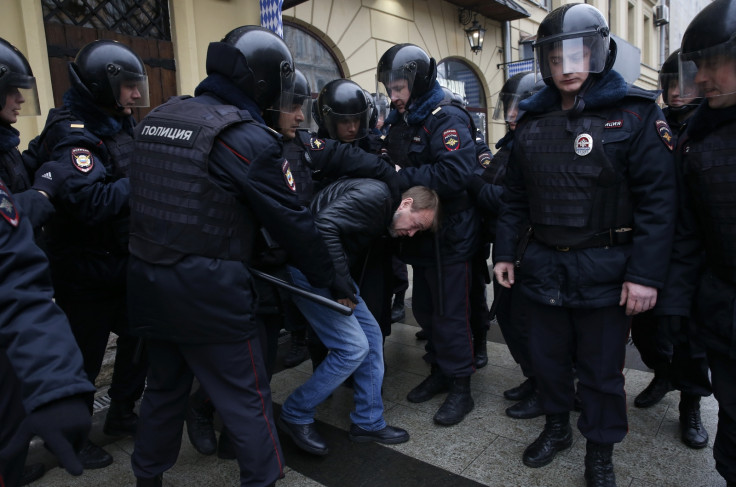More than 30 Russian protesters arrested in further anti-corruption rallies
Demonstrations have continued to take place in Moscow despite police intimidation and aggression.
Dozens of protesters have been arrested in Russia as a wave of political anger continues to rise up through the nation.
Protesters gathered in Moscow's Tverskaya Street in opposition to alleged government corruption for the second week in a row on Sunday (2 April) in spite of the knowledge such action would be met with the heavy hand of the police force.
Seven days prior, hundreds of people were detained and some badly beaten across the country after rallies were organised by opposition leader Alexei Navalny, who has been among President Vladimir Putin's most vociferous of critics.
Navalny was arrested and is currently serving a 15-day sentence for his part in the protests, however activists have taken it up themselves to continue his cause.
Russia's state news agency TASS said at least 30 protesters were arrested – a figure in line with initial reports from AFP journalists and NGOs. OVD Info, a website that monitors detentions of activists, reported that among four of those were minors.
The protests were largely organised over social media and some fear the Putin may enact restrictions in coming months to disrupt access to outlets such as Facebook and Twitter at times of unrest.
Writing for IBTimes UK, Alex Kokcharov, a political analyst for IHS Market, said: "The Kremlin has long indicated it wanted a tighter control over the internet within Russia's sovereign boundaries and back in 2014 began working towards establishing 'autonomous internet segment'.
"The latter's completion is expected by the early 2018, in time for the election. Thus, if the Kremlin feels threatened by protests and growing dissent spreading over the social media, it will have an option of cutting off Facebook, Twitter or YouTube, which are increasingly used for coordination of the protests, altogether."
Kyra Yarmysh, Navalny's press secretary, said via Twitter that the dissident had no part in the protests.

© Copyright IBTimes 2025. All rights reserved.






















